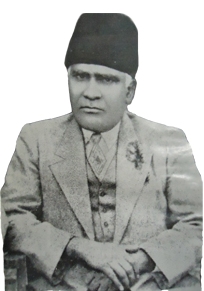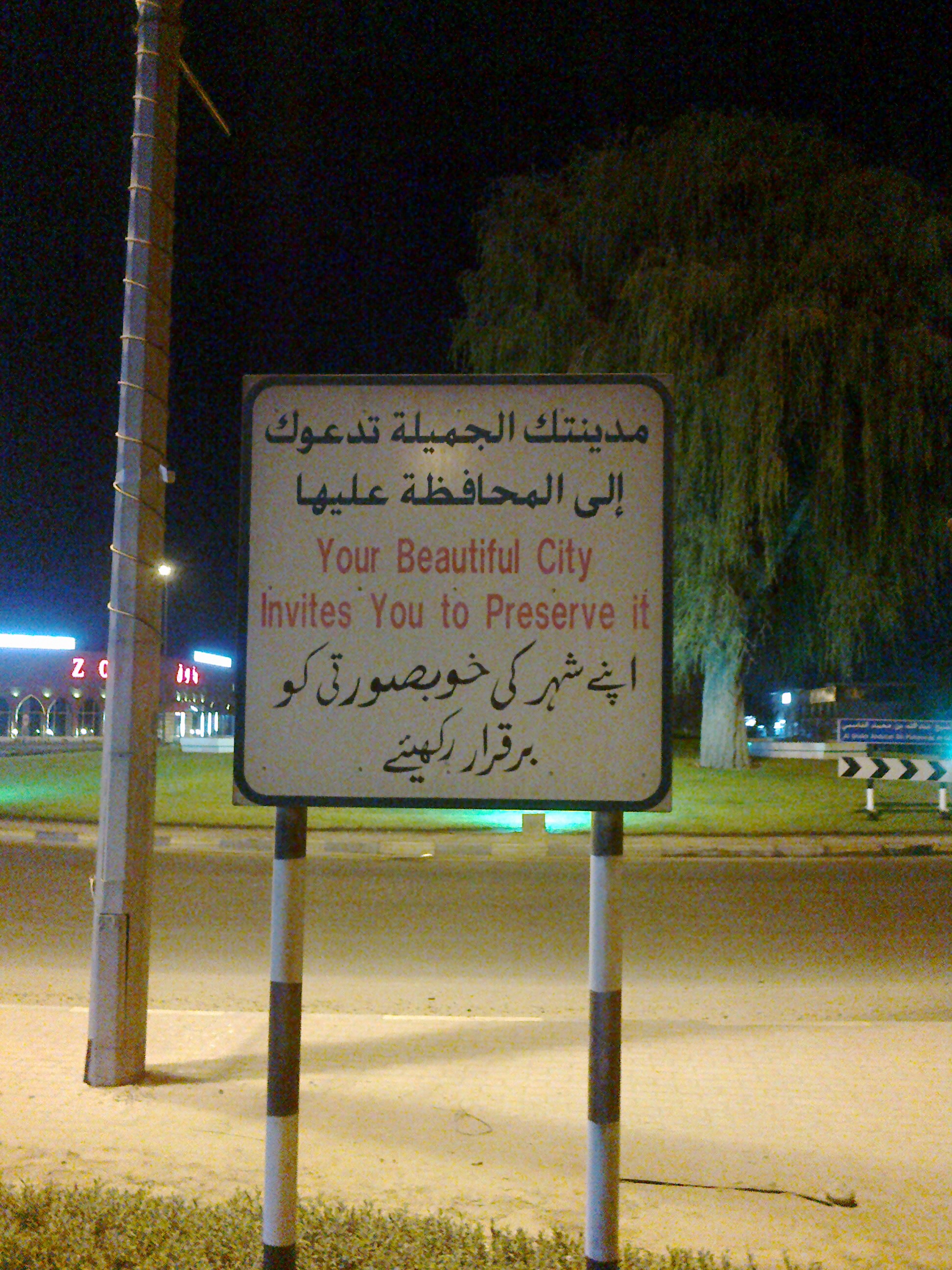|
Hafiz Mehmood Khan Shirani
Hafiz Mehmood Shirani (1880–1946) was an Indian researcher and poet during the British era and father of Urdu poet Akhtar Sheerani. He started teaching Urdu at Islamia College, Lahore in 1921. In 1928 he moved to Oriental College, Lahore. He was a researcher and his popular theory was "Punjab Mein Urdu" which made him famous. Hafiz Mehmood Khan Shirani died in his native town of Tonk. Life of Shirani Hafiz Mohammad Mahmood Khan Shirani alias Mohammad Michael was born on October 5, 1880, in Tonk of Rajasthan where his father, Mohammad Ismail Khan held some important poets. His ancestors belonged to the Afghan tribe named Shirani which had come to India with Mahmood Ghaznavi and stayed back in Tonk. In his child Sherani received religious education; later, he was sent to Jodhpur for learning English and subsequently admitted to Oriental College, Lahore from where obtained the Degree of Munshi Fazil. He developed a taste for poetry and wrote a few poems, including “Tipu Sul ... [...More Info...] [...Related Items...] OR: [Wikipedia] [Google] [Baidu] |
Prof
Professor (commonly abbreviated as Prof.) is an academic rank at universities and other post-secondary education and research institutions in most countries. Literally, ''professor'' derives from Latin as a "person who professes". Professors are usually experts in their field and teachers of the highest rank. In most systems of academic ranks, "professor" as an unqualified title refers only to the most senior academic position, sometimes informally known as "full professor". In some countries and institutions, the word "professor" is also used in titles of lower ranks such as associate professor and assistant professor; this is particularly the case in the United States, where the unqualified word is also used colloquially to refer to associate and assistant professors as well. This usage would be considered incorrect among other academic communities. However, the otherwise unqualified title "Professor" designated with a capital letter nearly always refers to a full professor. ... [...More Info...] [...Related Items...] OR: [Wikipedia] [Google] [Baidu] |
Masud Husain Khan
Masud Husain Khan (28 January 1919 – 16 October 2010) was an Indian linguist, the first Professor Emeritus in Social Sciences at Aligarh Muslim University and the fifth Vice-Chancellor of Jamia Millia Islamia, a Central University in New Delhi. On 16 October 2010 Masud Husain Khan died in Aligarh from Parkinson's disease. Family Masud Husain Khan was born in Qaimganj district Farrukhabad, into a Pashtun family of the Afridi and Kheshgi tribe of Uttar Pradesh. His family is sometimes referred to as the ''Family of Vice-Chancellors'', having provided Vice-Chancellors to four different universities across the Indian subcontinent. Masud Husain's father Muzaffar Husain Khan (1893–1921) completed his education from Islamia High School Etawah and Mohammadan Anglo Oriental (M.A.O.) College, Aligarh. He started his judicial career in Hyderabad but died of tuberculosis at the early age of twenty-eight. Masud Husain was just two years old when he lost his father. Muzaffar Husain ... [...More Info...] [...Related Items...] OR: [Wikipedia] [Google] [Baidu] |
People From Tonk District
A person ( : people) is a being that has certain capacities or attributes such as reason, morality, consciousness or self-consciousness, and being a part of a culturally established form of social relations such as kinship, ownership of property, or legal responsibility. The defining features of personhood and, consequently, what makes a person count as a person, differ widely among cultures and contexts. In addition to the question of personhood, of what makes a being count as a person to begin with, there are further questions about personal identity and self: both about what makes any particular person that particular person instead of another, and about what makes a person at one time the same person as they were or will be at another time despite any intervening changes. The plural form "people" is often used to refer to an entire nation or ethnic group (as in "a people"), and this was the original meaning of the word; it subsequently acquired its use as a plural form of per ... [...More Info...] [...Related Items...] OR: [Wikipedia] [Google] [Baidu] |
Literary Critics Of Urdu
Literature is any collection of written work, but it is also used more narrowly for writings specifically considered to be an art form, especially prose fiction, drama, and poetry. In recent centuries, the definition has expanded to include oral literature, much of which has been transcribed. Literature is a method of recording, preserving, and transmitting knowledge and entertainment, and can also have a social, psychological, spiritual, or political role. Literature, as an art form, can also include works in various non-fiction genres, such as biography, diaries, memoir, letters, and the essay. Within its broad definition, literature includes non-fictional books, articles or other printed information on a particular subject.''OED'' Etymologically, the term derives from Latin ''literatura/litteratura'' "learning, a writing, grammar," originally "writing formed with letters," from ''litera/littera'' "letter". In spite of this, the term has also been applied to spoken or sun ... [...More Info...] [...Related Items...] OR: [Wikipedia] [Google] [Baidu] |
1946 Deaths
Events January * January 6 - The first general election ever in Vietnam is held. * January 7 – The Allies recognize the Austrian republic with its 1937 borders, and divide the country into four occupation zones. * January 10 ** The first meeting of the United Nations is held, at Methodist Central Hall Westminster in London. ** ''Project Diana'' bounces radar waves off the Moon, measuring the exact distance between the Earth and the Moon, and proves that communication is possible between Earth and outer space, effectively opening the Space Age. * January 11 - Enver Hoxha declares the People's Republic of Albania, with himself as prime minister. * January 16 – Charles de Gaulle resigns as head of the French provisional government. * January 17 - The United Nations Security Council holds its first session, at Church House, Westminster in London. * January 19 ** The Bell XS-1 is test flown for the first time (unpowered), with Bell's chief test pilot Jack Woolams at t ... [...More Info...] [...Related Items...] OR: [Wikipedia] [Google] [Baidu] |
1880 Births
Year 188 (CLXXXVIII) was a leap year starting on Monday of the Julian calendar. At the time, it was known in the Roman Empire as the Year of the Consulship of Fuscianus and Silanus (or, less frequently, year 941 ''Ab urbe condita''). The denomination 188 for this year has been used since the early medieval period, when the Anno Domini calendar era became the prevalent method in Europe for naming years. Events By place Roman Empire * Publius Helvius Pertinax becomes pro-consul of Africa from 188 to 189. Japan * Queen Himiko (or Shingi Waō) begins her reign in Japan (until 248). Births * April 4 – Caracalla (or Antoninus), Roman emperor (d. 217) * Lu Ji (or Gongji), Chinese official and politician (d. 219) * Sun Shao, Chinese general of the Eastern Wu state (d. 241) Deaths * March 17 – Julian, pope and patriarch of Alexandria * Fa Zhen (or Gaoqing), Chinese scholar (b. AD 100) * Lucius Antistius Burrus, Roman politician (executed) * Ma Xiang, Chin ... [...More Info...] [...Related Items...] OR: [Wikipedia] [Google] [Baidu] |
Mohiuddin Qadri Zor
Mohy al-Din ( ar, محيي الدین, ) is a male Muslim name composed of the elements ''Muhyi'', meaning "reviver", and ''ad-Din'', meaning "of the faith". It may refer to: People Name * Muhieddine Jaroudi, Lebanese footballer * Muhiuddin Khan (1935 - 2016), Bangladeshi author on numerous Bengali Islamic books, noted for the famous Bengali translation of the Quran. * Al-Sayyid Muhiyudin Abu Muhammad Abdul-Qadir Gilani Al-Hasani Wal-Hussaini (1077–1166), Sufi religious figure. *Muhyi al-Dīn al-Maghribī (1220–1283), Spanish-born Arab astronomer * Muhi Al-Din Lari (died 1526), Indian or Persian miniaturist and writer. * Muhi al-Din Muhammad Aurangzeb (1618–1707), sixth Mughal Emperor *Muhyiddin of Brunei (1673–1690), 14th Sultan of Brunei *Muhyi ad-Din Muzaffar Jang Hidayat (died 1751), ruler of Hyderabad *Mohideen Baig (1919–1991), Sri Lankan musician *Mohieddin Fikini (1925–1994), Libyan politician, Prime Minister of Libya * Mohi-Din Binhendi, Emirati businessma ... [...More Info...] [...Related Items...] OR: [Wikipedia] [Google] [Baidu] |


_1938.jpg)



